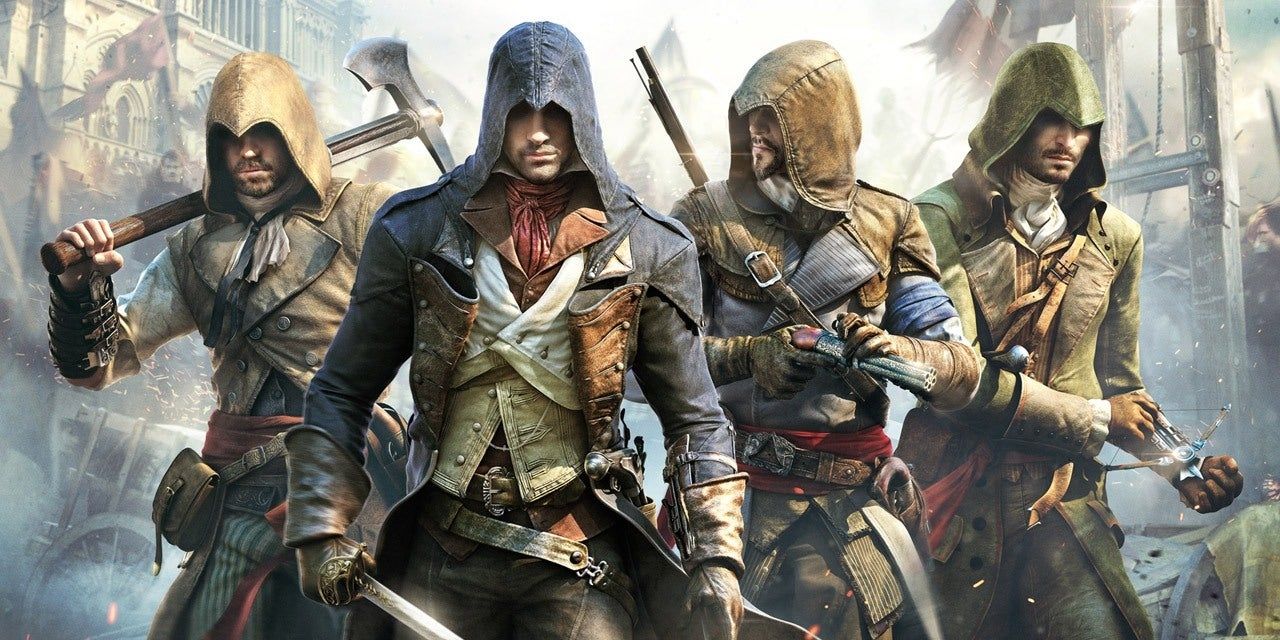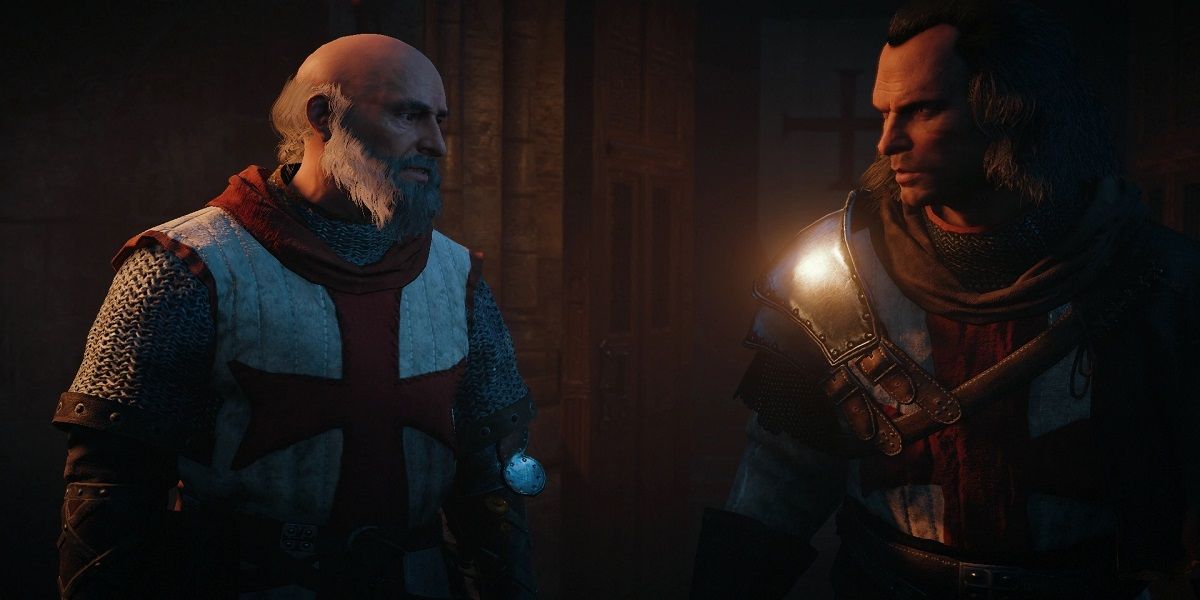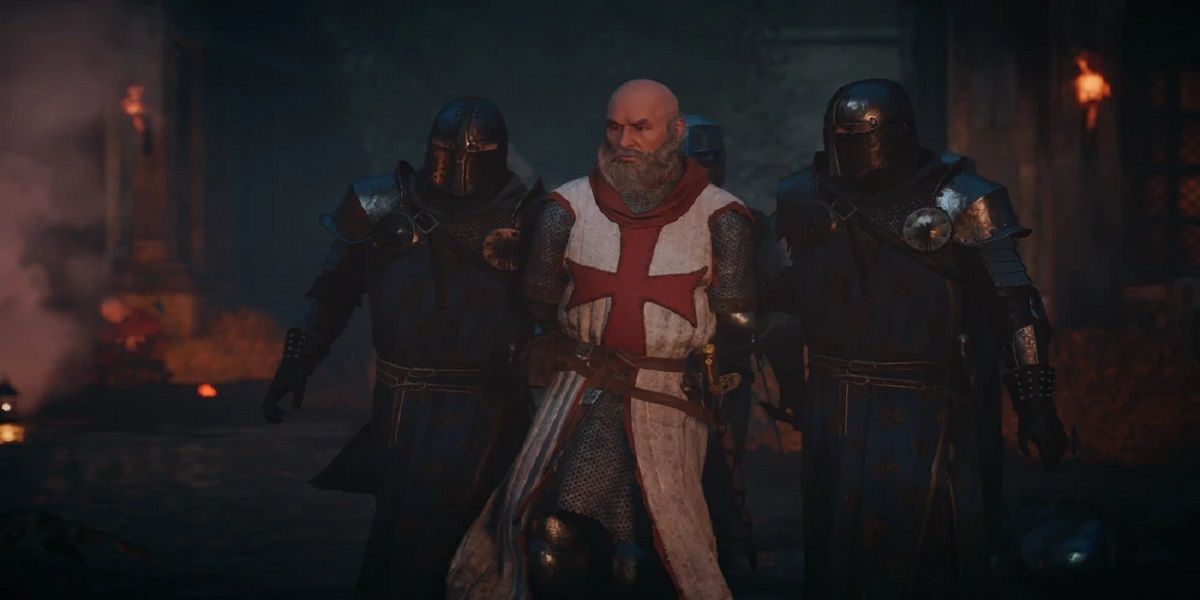Assassin’s Creed Unity has become synonymous with wasted potential. While there was so much to love about the eighth major installment of the acclaimed Ubisoft series, it was infamously hampered by game-breaking bugs and glitches that rendered things near-unplayable when it debuted in 2014. It was a reputation from which the game could never quite recover, a crying shame considering the fact that, when working properly, Unity is a hugely enjoyable experience.
Some series' high points can be found within the mythology of the French Revolution. Many consider Unity to be the unsurpassed apex of Assassin's Creed's parkour mechanics, while the atmosphere and ambiance of 18th century Paris create a setting that is as brutal as it is beautiful. Unity also hinted at some expert story craft, that finds its greatest effect in the game's exceptional prologue: The Tragedy of Jacques de Molay.
Before getting involved with the adventures of Arno the Assassin and his quest to clear his name and end the Templar influence in France, they are treated to perhaps the best opening of any Assassin’s Creed game ever. Players are plunged into the action as an advisor to Templar Grandmaster Jacques de Molay, who is charged with protecting the Temple’s Sword of Eden and the Order's central Codex. Set in early 14th century Paris as the Templar Order is seemingly coming to an end, it is a welcome return to such an evocative period in history not seen in the series since the flashbacks to Altair in Assassin’s Creed: Revelations.
The advisor ultimately fails after being killed by an assassin, while Jacques is later burned at the stake for heresy on the orders of King Philip IV of France. The historical reasons for this are fascinating: Philip was concerned about the growth in power and wealth of the Templar Order and sought to re-centralize power by essentially dissolving the Templars and bringing control back to the Crown. The blending of real events and historical fantasy is something Ubisoft's mammoth franchise has excelled at, and a chance to see the role the Assassins play in the downfall of Jacques and the Templars leading up to his arrest would be an engrossing narrative.
This era is one long-time fans want the series to revisit. A game that incorporated the story of the Knights Templar from their perspective -- perhaps from the end of the Crusades leading up to the Order's ultimate dissolution -- would provide a new outlook on the first game's story. The Medieval period has been vastly underutilized by Ubisoft, with only the original and 202s's Valhalla centering exclusively on the Middle Ages. A new game spanning the Holy Land to Europe wouldn't be impossible and may be well-suited to the upcoming Assassin’s Creed: Infinity's structure.
It also operates as a hugely significant moment in the Assassin's Creed timeline. With the Templar Order seemingly destroyed on the orders of King Philip IV, this signifies the moment it is driven underground to become, much like the Assassins themselves, a clandestine brotherhood working from the shadows. If anything, this would be the first chance to properly play as a Templar since Assassin’s Creed: Rogue put players in the shoes of Shay Cormac. Another chance to see things from the other side of the fence would surely be a welcome change.
Ultimately, it would be another chance for Assassin's Creed to show some of the maturity it has often hinted at but shied away from. In acknowledging the Templar Order may be more than just a villainous cult always at odds with the ever-virtuous Assassins, Ubisoft has the chance to deliver a game with real narrative texture and weight. Desmond and the other 21st century Assassins hint that their own order isn't without fault, while Rogue gave Shay a justifiable reason to be repulsed by the actions of his own community. Telling the other side of the story is, after all, vital to our understanding of history and of the series' central Templar/Assassin conflict.
The first Assassin's Creed isn't the series pinnacle, surpassed by more enjoyable titles like Black Flag and well-rounded adventures like Assassin's Creed II. What the first game did give players, however, was one of the game's most immersive and fascinating settings, which established the core tension of the series' entire grand narrative. While subsequent installments have lost focus on this central dichotomy of Assassins vs. Templars, or else unconvincingly shoe-horned it in elsewhere, an expansion of Unity's prologue would be a chance to delve back into a fascinating period of history with a brand-new point of view.



